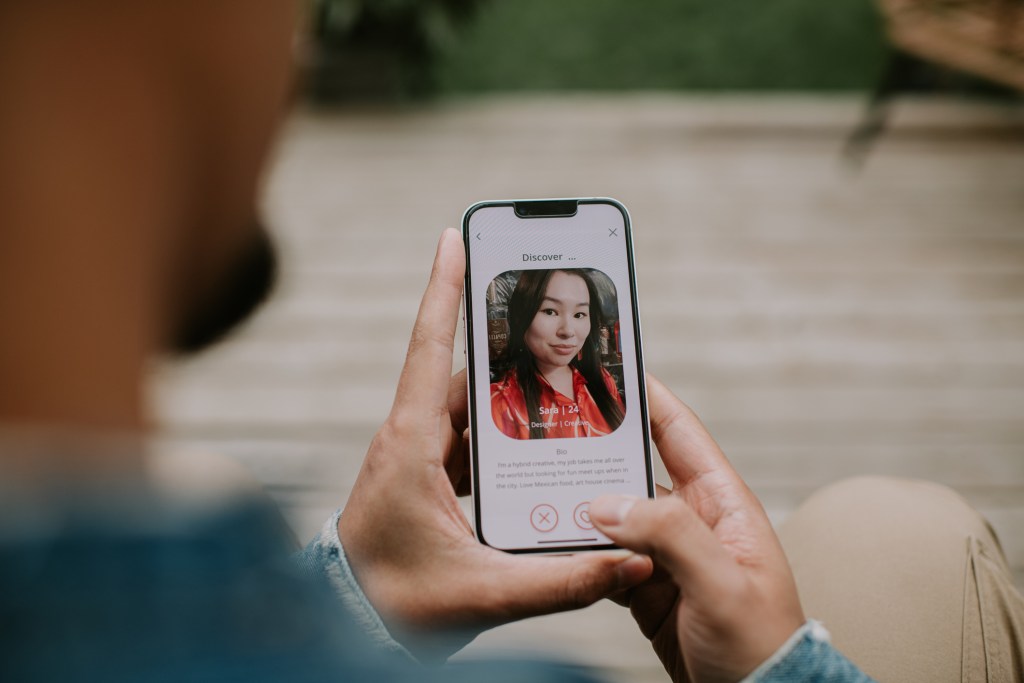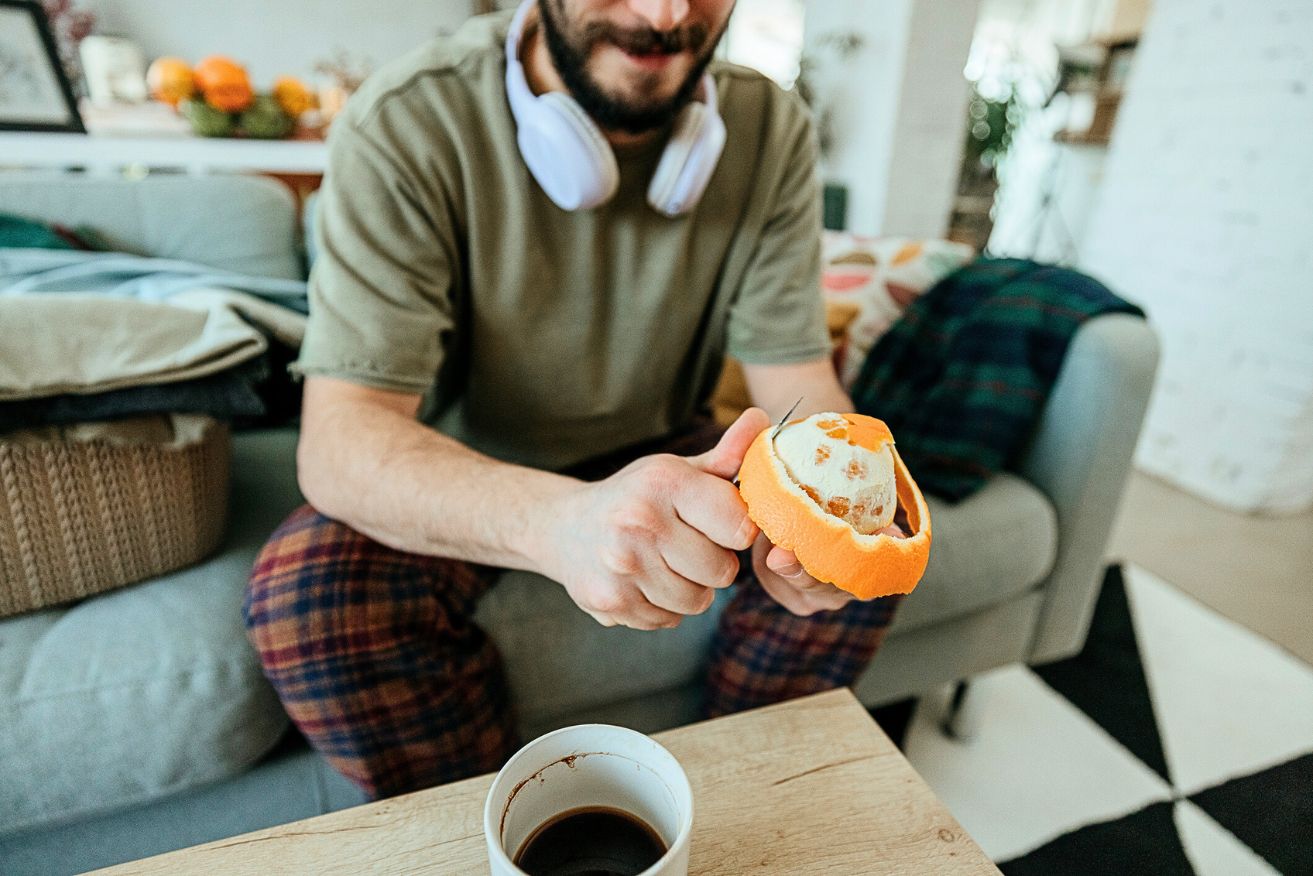Have you ever wondered if your partner really loves you? Well, apparently so have thousands of TikTok users, who are testing their theories for the world to see.
In the past year we’ve seen a rise in TikTok trends that purport to “test” a partner’s loyalty or the strength of a couple’s relationship.
These tests vary in severity, from telling your partner you saw a cool bird and hoping they respond with equal enthusiasm, to asking an influencer to flirt with them to see if they’ll cheat.
If this sounds stressful or potentially problematic to you, that’s because it is.
What are these tests?
Generally, TikTok relationship tests involve the tester acting a certain way in front of their partner, while making a video, and posting the results on TikTok for others to judge.
Several different tests have trended this year.
One of the most popular is the orange peel “theory” (we use the word very lightly here), in which the tester tells their partner they feel like eating an orange.
Some partners simply acknowledge the comment, while others actually go and get an orange. But the “winners” are those who first retrieve the orange and then happily peel or cut it up for their significant other.
In another popular test, women TikTokers ask their partners to “name a woman”. If they respond with any name other than the tester’s, the woman pretends to act shocked, surprised or angry.

Testing a partner to see if they will cheat is likely to create insecurity in your relationship. Photo: Getty
Why do we watch?
So why do millions of people watch and comment on these videos? There are two things we can point to here.
The first is the close resemblance these videos have to reality television, which research has shown we watch, in part, to feel better about ourselves.
Research has also found people are more likely to like, share and comment on stories when they feel a sense of moral outrage.
It then comes with a pleasurable payoff once the source of the outrage seemingly gets what they deserve.
One emotion at play here is “schadenfreude”, which refers to taking pleasure from another’s pain.
Whether we agree someone’s boyfriend deserves to be called out, or that the original poster “had it coming” with the response, we tend to feel satisfied by being part of the mob response.
Unfortunately, this motivates a hostile online environment. In such spaces, where we see others piling on the shame, we’re also more likely to do so ourselves.
Are the ‘tests’ legitimate in any way?
It’s safe to assume relationship TikTok tests aren’t even close to what would be recommended by relationship science.
Currently in psychology research there is no single diagnostic test that can give us exact information about the validity or longevity of someone’s relationship.
Such psychological assessment is complex and can require multiple types of assessment.
Moreover, these assessments are often done in various contexts and with feedback from multiple others. Even well-designed personality tests can give questionable, useless or misleading information when applied at an individual level.
Relationships benefit from all parties taking the time to understand one another – not from rushing to diagnose and assign labels.
How might the tests be harmful?

Beware the TikTok romance trap – it’s likely to backfire. Photo: Getty
Sometimes we treat our partner as an object – a means to the end of our own desires, with no recognition of their desires.
These TikTok video are often driven by a desire for personal fame, reassurance about the security of one’s relationship, or wanting to feel like the “superior” partner.
Of course this can backfire, especially if the person being unwittingly “tested” has their response shared online against their will.
People in relationships are interdependent. This means they influence each other and can choose to meet or deny each other’s needs.
When our needs aren’t met, communication is necessary to understand what matters to each person, and why a particular behaviour or pattern of behaviour is hurtful.
It also requires a shared understanding of how to move forward together.
Working through what happened, taking time to recognise each other’s needs and agreeing on the shared values underpinning a conflict are important for repairing a relationship.
Using a shame-based video to prove a point suggests the absence of healthy communication.
Beyond that, people tend to seek out information that confirms what they already think. This is called “confirmation bias”.
If someone feels insecure about their partnership, they may subconsciously seek out information that confirms their insecurities, or interpret new information in this way.
Research has found if you act in a way that’s untrustworthy, such as setting up your partner to fail in a TikTok “test”, you are more likely to create insecurity in your relationship.
The line between humour and harm
Of course, some people posting these videos are just doing so to be playful or funny.
Their partner may not mind, or may even be in on the gag.
As long as a behaviour is an expression of a couple’s shared values, is done with consent (especially in terms of uploading the video online) and makes both parties feel respected, who are we to judge?
At the same time, many TikTok relationship tests presented as “jokes” will often portray women as being stereotypically jealous, needy or manipulative.
And like all media that stereotype men and women, such content can further feed sexist attitudes and harm our relationships.![]()
Edith Jennifer Hill, Associate Lecturer, Learning & Teaching Innovation, Flinders University and Lydia Woodyatt, Professor of Psychology, Flinders University
This article is republished from The Conversation under a Creative Commons licence. Read the original article.









